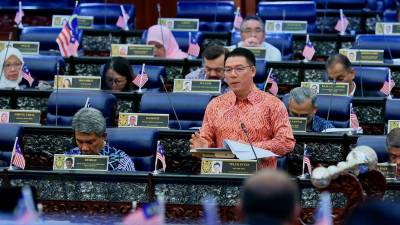KUALA LUMPUR: The Dewan Rakyat concluded its Second Meeting of the Fourth Session of the 15th Parliament after twenty four days of legislative proceedings.
Three significant bills were passed during this session reflecting the Madani Government’s commitment to institutional reform.
The Consumer Credit Bill 2025 received unanimous approval to strengthen regulation of lending systems including the Buy Now Pay Later scheme.
This scheme recorded 102.6 million transactions in the first half of 2025 according to parliamentary records.
The bill establishes a Consumer Credit Commission to regulate credit businesses currently operating without specific monitoring.
Minister of Investment, Trade and Industry announced approved investments reaching RM474.2 billion from January 2024 to March 2025.
Artificial intelligence related investments totalling RM3.29 billion were approved with a target contribution of 25.5% to GDP.
The government decided not to implement the high value goods tax but incorporated its principles into sales tax reviews.
Luxury and choice goods will now be taxed at five or ten percent under the revised sales tax structure.
The Countervailing and Anti Dumping Duties Amendment Bill 2025 passed on August 26 to ensure fair trade practices.
This legislation addresses concerns over the multilateralism system under the World Trade Organisation framework.
The Government Procurement Bill 2025 introduced more transparent check and balance mechanisms in procurement processes.
It limits the powers of the Finance Minister while strengthening the Procurement Board’s role in approvals.
Prime Minister Datuk Seri Anwar Ibrahim stated the bill continues the Public Finance and Fiscal Responsibility Act 2023.
Communications Minister Datuk Fahmi Fadzil described the bill’s passage as proof of the government’s strong parliamentary majority.
The session approved nineteen bills alongside the 13th Malaysia Plan during its twenty four day sitting.
These legislative measures form the legal basis for a more transparent, fair and sustainable economy. – Bernama
